The selection of the contractor is one of the most important decisions you make in undertaking a commercial construction project. The commercial building contractor will manage all affairs, from initial design and planning to the final construction touches. In this blog, we discuss who commercial building contractors are, what they do, and nine key factors you should consider when choosing the right one for your project.
Post your Requirement
Who Are Commercial Building Contractors?
Commercial building contractors are those who offer to build, renovate, and repair commercial buildings. These include office buildings, retail, warehousing, industrial establishments, etc. They have wide experience in construction methods and complete knowledge of local building codes, safety standards, and other new technologies in building construction.
Responsibility Of Commercial Building Contractors
The responsibilities undertaken by commercial building contractors are indeed multifaceted, which can be a precursor to the execution of a project. First, project logistics involve communicating with architects, engineers, and other subcontractors, among others, so that the project stays on time and within budget. This aspect is so critical because it ensures all stakeholders are kept informed and aligned, thereby minimizing delays.
Apart from project management, the contractor plans detailed cost estimates of all things related to the project materials, labour, and contingencies. This expert knowledge of budgeting implies the capability of making informed financial decisions such that the project remains financially viable. More so, it is a contractual requirement to institute controls relating to quality such that the work meets or exceeds industry standards and local building codes for safety and compliance.
Yet another important responsibility is obtaining all those permits and licenses necessary for a construction project. This administrative part of the work is not only expedient but also to a certain degree prevents legal problems from occurring in the future. The most important part is on-site management; contractors manage sites to ensure that safety is not ignored and work is being done just as planned. They are the liaisons to ensure that the clients and the construction team communicate effectively. They update the clients on issues and come on board to discuss an issue if it arises.
Factors To Consider When Choosing The Commercial Building Contractor
1. Experience And Expertise
Choosing a commercial building contractor involves awareness of the experience and capability of the contractor in the industry. Look for contractors who have a history of delivering successful projects with an attention to detail. Experience would not only make them familiar with the most common problems but also provide more quality work because an experienced contractor, quite often, learns more about the subtlety associated with different types of commercial buildings as well, which might directly affect the success of your project.
- Questions To Ask: Monitor the experience of potential contractors by asking them how many years of business they have had and their reference list, which should ideally be from former clients. Ask for such commercial projects they have undertaken, keeping in mind that these projects should be more or less similar to yours. Regarding their past work, you can very well get insight regarding their capabilities and how they might handle your project.
- Importance: Contractors with many years of experience should have developed a reliable network of subcontractors and suppliers that would help your project be accomplished. Familiarity with the variety of methods and materials of the building will also bring efficiency and better cost management into the execution of the project.
2. Licensing And Insurance
Before hiring any commercial building contractor, ensure that you check their licensing and insurance. Licensing is a must-check if they are complying with all of your local regulations. Any potential liability will be covered through the contractor’s insurance. Requirements of different states and municipalities vary for commercial contractors. A reliable contractor will have no problem providing the right documentation.
- What To Look For: Make sure your contractor has all the licenses that should be present in your area. Most importantly, he or she must also have liability insurance and workers’ compensation. These are among the most important types of insurance. They will protect you from direct loss in case of accidents or damages during construction.
- Why This Matters: Having a licensed and insured contractor mitigates the risks while giving peace of mind knowing that the individual is covered in cases of unexpected happenings. In cases of accidents on the site of work, proper insurance may prevent you from being held financially responsible; hence you can keep your focus where it belongs: on the progress of your project.
3. Reputation And Reviews
One of the great ways that you could come to know about the reliability and quality of work of a contractor is by researching that particular contractor. Online reviews, testimonials, and ratings on good sites are going to be among the things you’ll look for. A contractor’s reputation is often a sign of what has happened in their past and the experiences of previous clients.
- How to Research: Start researching at places like Google, Yelp, and the Better Business Bureau, which are all review sites so you get client feed. Get their references from previous clients, then reach them to discuss their experiences. That will give you a firsthand account of how it feels to hire the contractor. Moreover, any awards or recognitions in the construction field go hand in hand with a sort of certification and quality of service that the contractor would be performing.
- Important: A reputable contractor will offer a successful project and ensure that there is effective communication all through the construction process. A good reputation contractor will probably have developed an amicable relationship with suppliers as well as subcontractors to ensure that the workflow consequently becomes smooth.
4. Specialization In Commercial Construction
Not all construction companies are equally skilled in the various forms of building. By the time you search for “commercial building contractors near me, ” the contractor must have specific expertise in the kind of commercial construction you are about to carry out, especially the specific form of building you are going to build or renovate.
- Consideration: Assess the contractor’s portfolio: Do they have experience with the particular building type you require—retail spaces, office buildings, or industrial sites? Once experience is gained with the unique demands of various types of commercial projects, it becomes a game changer. For instance, retail space might have different needs from the perspective of layout and customer flow, whereas an industrial building could be primarily centred around functionality and efficiency.
- A specialized contractor would know and be adept at dealing with specific commercial building construction challenges, making it smoother and more successful. Their experience in the area of your need may also lead to innovative solutions that further enhance the success of the project.
5. Clear Communication
Communication is the largest contributor to a successful construction project. Look for a contractor who has an open communication channel and one that is going to keep you informed from the beginning to the end. There is ample room for misunderstandings, delays, and costs when there is poor communication; it is, therefore, very critical you choose a contractor who excels in communication.
- Questions To Ask: Pay attention to the contractor’s responsiveness during the opening interactions. Are they quick to answer your questions? Can they give you clear explanations about timelines, budgets, and changes to the project? Early communication speaks much about the contractor’s approach to the entire project.
- Why it’s important: A good communication contractor will prevent misunderstandings and let you always have information on the status of the project. This kind of transparency also leads to more trust and collaboration, and most complex issues are sorted early as problems are identified immediately, which helps to maintain momentum in the construction process.
6. Financial Stability
The stability of the contractor’s financial situation has a lot to do with ensuring that your project is done correctly. It is much more probable that a financially stable contractor will not experience events that delay or adversely impact the final quality. Knowing the financial stability and or background of a contractor can give one a feeling of security in knowing they have the wherewithal to bring your project to a fruitful end.
- How To Evaluate: You can assess the financial situation of a contractor when you request to see the financial statements or proof that they are financially stable. Ask, as well, if they can pay by method if that is possible and if there are any liens or cases filed in court because of previous projects. A contractor with a clean financial standing is more likely to be trusted and to follow through with the delivery of quality work.
- Importance: Choose a contractor with solid financial footing. This means choosing a contractor who can manage your project without experiencing cash flow problems that may affect construction. In this scenario, financial soundness contributes to the timely completion of your project. It also reflects the professionalism and reliability of the contractor.
7. Contract And Warranty
Review the contract terms to be honoured and warranty options before final decision-making. A clear, well-detailed contract protects both parties involved and defines expectations for the project. The contract should specifically outline the scope of work involved, payment terms, timelines, as well as commitments by each party.
- Key Elements Of Good Contract: Make sure the scope of work is well outlined in a contract, and ensure you have set timelines and milestones for follow-up on how the project is progressing. Clearly outline payment schedules and any stipulations regarding any change in scope. Lastly, the contract should detail any warranty covering workmanship and materials, thus protecting your investment.
- Significance: A clear contract ensures that both you and your chosen contractor are guided on what is expected of you, thereby making disputes rare in the future. Agreement on terms and responsibilities in writing means that the expectations and aspects of responsibilities between parties are clearly defined to have a smooth construction.
8. Safety Record
Safety always comes first in commercial construction buildings. Investigate the safety record of the contractor and his safety practices to ensure a safe work environment. A good safety culture will avoid accidents and make the site more efficient in its operating standards.
- Questions To Ask: Request information on the measures of safety maintained by the contractors and how frequently their crew is trained. Also, information relating to accidents in previous projects is important in that a contractor’s track record relating to safety incidents on previous projects may indicate failure to take care of the workers or lack of integrity in carrying out the project.
- Why It’s Important: A contractor that has good safety records shows that they care for the security of their employees. This goes on to help the contractor ensure the success of the project. Focus on safety not only fills up the legal obligations but also helps with productivity since accidents are fewer and downtime, as well as operating conditions, are consequently better.
9. Post Construction Support
Post-construction support should be provided. Trouble always manages to surface even after the project is complete so it would be helpful to obtain a contractor who is willing to provide any needed post-construction assistance. Customer service commitment doesn’t end with the last nail but a good contractor will see you through to the end.
- Considerations: Request whether the contractors provide warranties for their work and what they provide them with. Also, request how long they are available for repair or maintenance purposes if problems crop up in the future. The readiness of contractors to back up their work will develop a good long-term relationship and portray a commitment to client satisfaction.
- Importance: A contractor who can provide support over an extended period ensures the long-term success of your commercial building and fosters a good relationship that leads to future collaborations. You also get peaceful sleep at night when you know that in case of a need for help down the line, someone will be there for you in the complexities of managing your commercial property.
Conclusion
Choosing the right commercial building contractor is one of the most important decisions that needs to be taken with deep thought. By considering your contractor’s experience, reputation, communication skills, financial stability, and safety practices, you will be selecting a good contractor who can yield the successful project you need. Be you looking for “commercial building contractors near me” or simply “commercial building repair contractors near me,” you will eventually have an efficient, effective, and satisfying construction experience by carefully analysing these nine key factors.

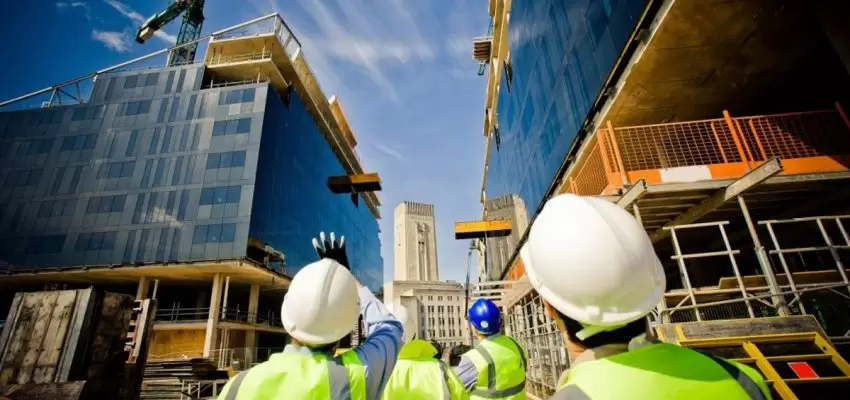
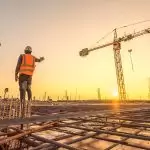
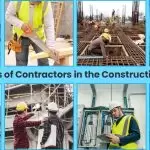
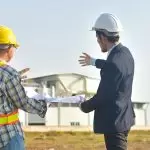
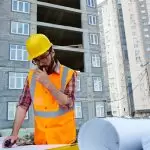

















Post A Comment